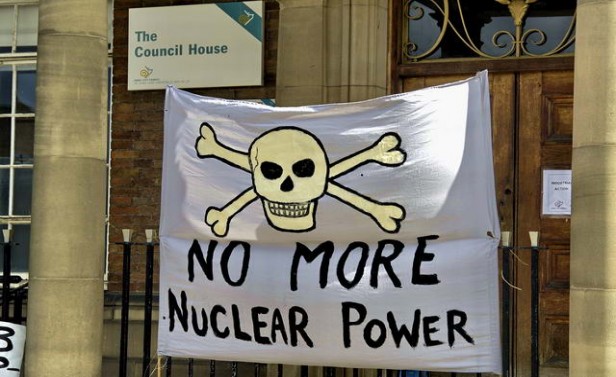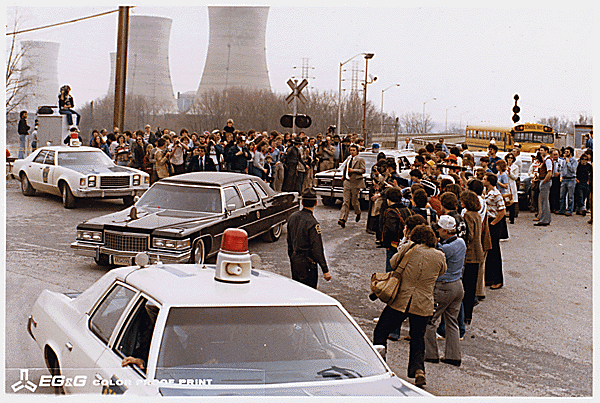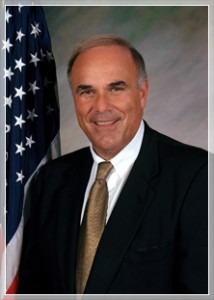Pennsylvania Governor Ed Rendell initially provided hope to those interested Pennsylvanians who view solutions to climate change through economic lenses. Sadly, on Wednesday, September 2, 2009, Governor Rendell announced that he is giving up on a policy likely to maximize net social welfare. He has backed down on his proposed 5% severance tax on Marcellus Shale natural gas extraction http://www.philly.com/philly/opinion/20090902_Editorial__Caving_in_to_industry.html .
According to the Environmental Protection Agency, natural gas extraction and burning emits nitrogen oxides, carbon dioxide and methane. There are also considerable land and water resource use problems involved with the extraction of natural gas including deforestation and water pollution http://www.epa.gov/RDEE/energy-and-you/affect/natural-gas.html. The proposed five percent severance tax could have ameliorated these environmental harms by using the revenue to offset these damages. Jan Jarrett, President and CEO of PennFuture, an environmental advocacy group in Pennsylvania, attributes Rendell’s policy change to the ongoing budget impasse, and powerful natural gas lobbies in Harrisburg http://www.pennfuturepodcast.org/index.php?post_id=521467 .
So why is it important that a fairly progressive Governor waffled on correcting the market’s failure to incorporate external environmental costs? If the Governor doesn’t view taxing environmentally harmful pursuits such as natural gas extraction as time sensitive (even though 39 other states tax extraction or other forms of energy extraction http://www.greenspacealliance.org/home/policyupdates.asp), who will? For now the PA Speaker of the House, Rep. Keith McCall (D-Carbon) and Majority Chair of the House Environmental Resources and Energy Committee, Rep. Camille George (D-Clearfield) say their plans for the severance tax are “alive and well” http://paenvironmentdaily.blogspot.com/2009/09/rep-george-stands-by-his-proposed.html. How do we know that the powerful interest groups and lobbyists who swayed Governor Rendell will not pressure McCall and George as well?
Tags: Kyoto to Copenhagen
Effectively combating global climate change will require a careful balancing act between the practical and the ideological, the short-term and the long-term, as well as the critical and the more trivial.
In Parker and Blodgett’s 2008 CRS Report for Congress, three lenses for viewing climate change are offered to elucidate the language of debate among a widespread and diverse group of policymakers. These lenses—the technological, economic, and ecological—each suggest a distinct view of the problem as well as a guiding set of principles that can be made in attempt to solve it. The technological lens views climate change with some sense of optimism, where more efficient technologies can be developed and implemented throughout society at an estimated life-time cost that is smaller than the savings they would generate. The economic lens considers climate change within a global market, where the solution can be achieved through internalizing external costs such as pollution. Finally, the ecological lens sees climate change in terms of individual and institutional behavior, where providing resources for people to express an understanding of the earth’s ecosystem through their daily choices is the ultimate long-term alleviation.
In some cases, however, these lenses do overlap and can either complement or conflict with each other. Additionally, questions of practicality arise when considering the model problem/solution of each lens. It is for these reasons that a blend of the three best characterizes my view on climate change in the most comprehensive manner.
Looking at the problem alone (and not the proposed solutions), I tend to view climate change through the ecological lens. I see it as more than just an economic opportunity but a moral obligation. Whether it was my upbringing or an intrinsic emotion, I feel a deep connection to nature and wish that same feeling to all. But, I also realize not everyone has that same feeling or has access to the same type of resources that I had to instill such emotion. Therefore the ecological lens, by itself, cannot convey my thoughts on how to adequately go about trying to solve climate change. But neither can the other two lenses by themselves. I have my doubts on technological solutions to climate change. Without a doubt, barriers exist when trying to develop a new technology. For instance, see how interest groups severely damaged the production and distribution of the electric car (http://www.youtube.com/watch?v=N7Mpe7XfODk) or simply consider how perceptions on nuclear energy changed after the incident on Three Mile Island.

Nuclear Power Protest

President Carter Leaving Three Mile Island
Nor do I believe the economic lens holds all the answers. While economic incentives can modify behavior, business and industry have found ways to avoid certain laws for years.
Ultimately, in order to effectively address climate change, elements of each lens must be employed in both the short and long-term. People must be informed of the dangers climate change to the earth’s ecosystem, new technologies should be developed to ease anthropogenic causes to global warming, and economic incentives must exist for businesses and individuals to conserve. Global climate change is not a minuscule dilemma. It is a challenge that must be faced by many for quite some time to come…
 Our students are the path to the future. In an effort to create a just and sustainable future they must be able to navigate and understand the intersections of physical, social, and political worlds in both a local and global context, and prepare to negotiate the security of natural resources and human livelihood with their neighboors; their ability to do so holds the balance of a sustainable future in hand. What is Dickinson College doing to engage our students in preparing for their role in a sustainable future?
Our students are the path to the future. In an effort to create a just and sustainable future they must be able to navigate and understand the intersections of physical, social, and political worlds in both a local and global context, and prepare to negotiate the security of natural resources and human livelihood with their neighboors; their ability to do so holds the balance of a sustainable future in hand. What is Dickinson College doing to engage our students in preparing for their role in a sustainable future?
In an effort to promote the importance of experiential learning and theory-based learning for sustainable education, the Center for Environmental and Sustainability Education at Dickinson College in conjunction with the Office of Global Education will lead a delegation of 15 students to the United Nations Framework on Climate Change (UNFCCC) 15th Climate Change Conference (COP15) in Copenhagen, Denmark as part of a year-long intensive course on policy development, climate change, and public communication.
- Dickinson College is a liberal arts college located in Carlisle Pennsylvania, USA
To prepare for this experience, realizing that students- as citizens, youth, and formative researchers- have a critical voice both in the negotiations themselves and communication of the proceedings and outcome between themselves and the public, the Center for Environmental and Sustainability Education is leading a full-year course to equip the delegation on issues and history surrounding climate change science, policy negotiations, history, and public opinion. The course is entitled “Kyoto to Copenhagen: Negotiating the Future of the Planet.” More information is available on the course website: DickinsonCOP15.
The interdisciplinary team of students (full delegation bios can be found here) participating in the class and traveling to Copenhagen will be recording their experiences, observations, reserach, and outreach to the public on this blog from September 2009 until the completion of the course, in May 2010.
Join our conversation as we attempt to explore our own understanding of climate change negotiations, and clear a path for the voices of all citizens to be heard in that process this December and well into the future of the planet. Write to us at kyoto2copenhagen@gmail.com, or leave a message here.
Tags: climate change education, COP15 Resources, Dickinson College, Kyoto to Copenhagen, student-citizens

Your Comments